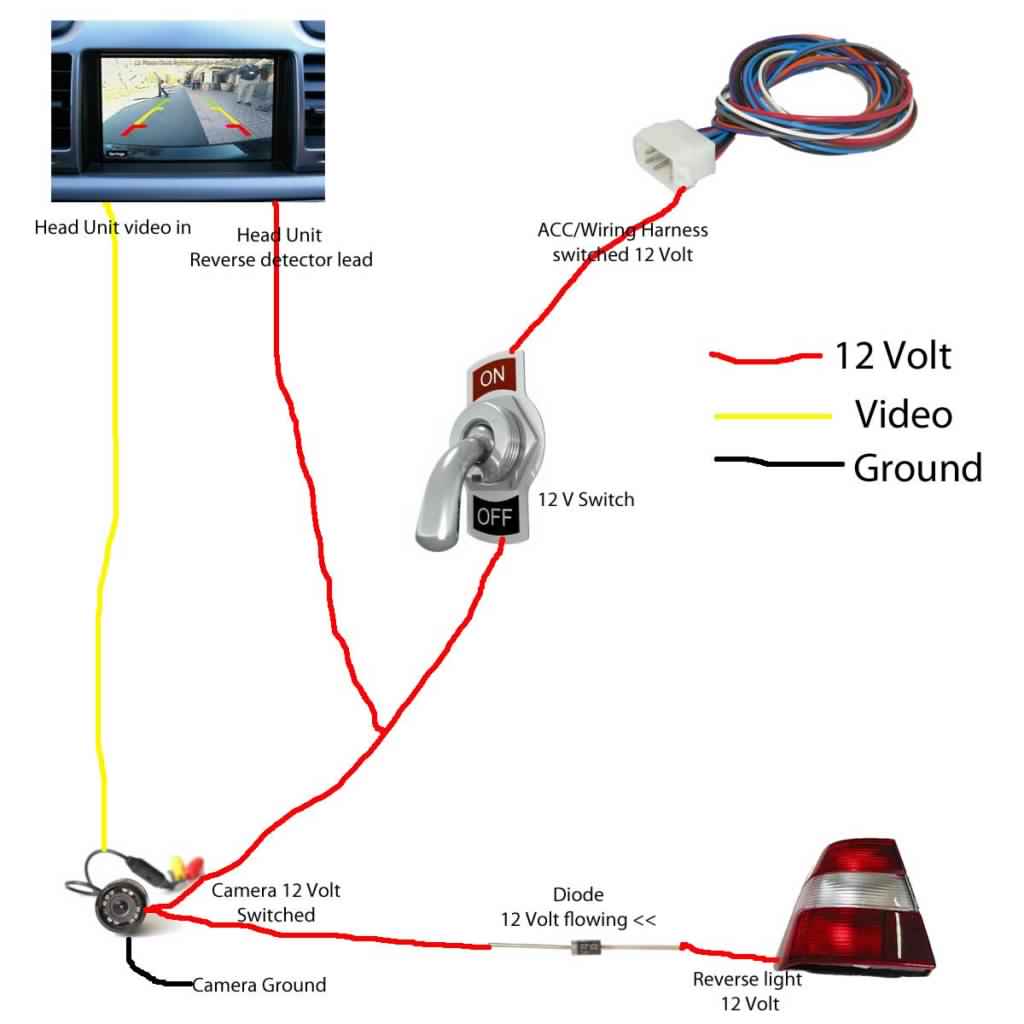Backup Camera Bliss: Conquer Your Car's Blind Spots
Parallel parking? More like perilous parking. Let's be honest, we've all been there. Sweating, inching back, praying we don't nail that rogue shopping cart. Or worse. Enter the automotive savior of the 21st century: the backup camera. It's not just a fancy gadget anymore; it's practically essential. This isn't your grandpa's Buick; the modern driving experience demands a clear view behind you.
These rear-facing wonders have become ubiquitous, popping up in everything from compact hatchbacks to hulking SUVs. But what's the big deal? Why the sudden obsession with having a camera pointed at your bumper? Well, it’s all about safety and, let’s face it, a little bit of peace of mind. Imagine the sheer panic avoided, the fender benders averted, all thanks to a little lens and a screen.
Rearview camera systems have come a long way since their clunky, early iterations. Once a luxury reserved for high-end vehicles, these digital eyes are now standard in many new cars and readily available as aftermarket additions. This democratization of the tech means safer reversing for everyone, regardless of their budget or vehicle model.
But navigating the world of automotive rear vision can be daunting. Wireless or wired? Integrated display or standalone monitor? The options seem endless. Fear not, because we're about to dive deep into the world of backup cameras, covering everything from the basics to the nitty-gritty details you need to know.
Think of this as your ultimate guide to conquering the blind spot behind your car. We’ll cover the history, the benefits, the installation headaches, and everything in between. Ready to upgrade your driving experience? Let's get started.
The earliest versions of rearview camera systems were bulky and expensive, mostly seen in large commercial vehicles. The technology gradually trickled down to consumer vehicles, becoming smaller, more affordable, and significantly more advanced. A key driver of this adoption was the increasing emphasis on vehicle safety standards and consumer demand for advanced driver-assistance systems.
A car backup camera is essentially a small camera mounted on the rear of your vehicle, designed to provide a live video feed of the area directly behind you. This feed is typically displayed on a screen integrated into the dashboard or a rearview mirror. It’s a simple concept with profound implications for safety and driver confidence.
Benefits of a reversing camera include increased safety by eliminating blind spots, reduced risk of collisions while reversing, and easier parking, especially in tight spaces. For instance, imagine backing out of your driveway with a playing child obscured from your view. A rearview camera could prevent a tragedy.
Advantages and Disadvantages of Backup Cameras
| Advantages | Disadvantages |
|---|---|
| Increased Safety | Can malfunction |
| Easier Parking | Can be obscured by dirt or debris |
| Reduced Blind Spots | Driver over-reliance |
Best Practices for Installing a Backup Camera: 1. Choose a high-quality camera. 2. Ensure proper wiring and connections. 3. Mount the camera securely. 4. Test the system thoroughly. 5. Consult a professional if needed.
Frequently Asked Questions:
1. How much does a backup camera cost? - Prices vary depending on features and brand.
2. Can I install a backup camera myself? - Yes, with some technical skills.
3. Are wireless backup cameras reliable? - Generally, yes, but wired connections are more stable.
4. What is the best type of backup camera? - Depends on your specific needs and vehicle.
5. How do I maintain my backup camera? - Keep the lens clean and check the wiring regularly.
6. Are backup cameras required by law? - In some countries, yes, for new vehicles.
7. Can a backup camera be integrated with my car's existing display? - Often, yes.
8. Do backup cameras work in the dark? - Many models have night vision capabilities.
Tips and Tricks: Regularly clean the camera lens. Check your owner's manual for specific instructions related to your vehicle's backup camera system. Consider adding grid lines to the display for easier parking.
In conclusion, the backup camera has evolved from a luxury item to an indispensable safety feature. From preventing minor fender benders to potentially saving lives, the benefits of having a clear view of what’s behind your vehicle are undeniable. While there are various factors to consider when choosing and installing a rear vision system, the investment in safety and peace of mind is well worth it. Don't let another parking mishap ruin your day. Take control of your blind spots and upgrade your driving experience with a backup camera today. Explore the options available, choose the system that best fits your needs, and experience the confidence and security that comes with knowing exactly what’s behind you. It's a small investment that can make a big difference.
Exploring the complexities of the michael afton and william afton dynamic in five nights at freddys
Decoding ya ya mijo ya angry birds the internets latest obsession
The allure of marine audio exploring the wet sounds 12 inch subwoofer














